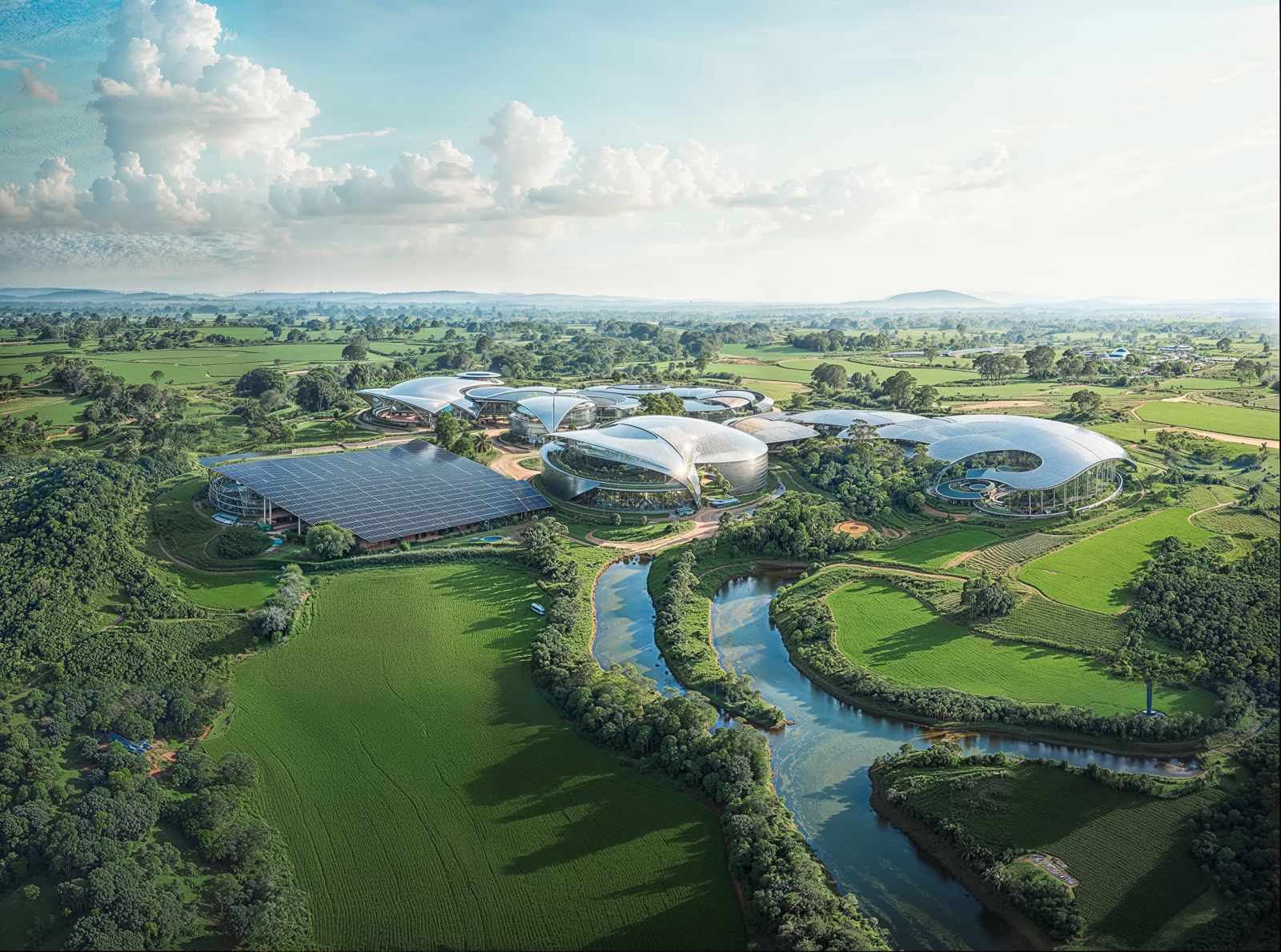
Titan E-Farms concept
US-based BG Titan Group has launched its Titan E-Farms initiative in Uganda. This launch represents a first step aimed at transforming agriculture across East Africa. With a total project size exceeding $650 million, the Titan E-Farms project aims to establish a sustainable agricultural model that supports economic growth while tackling critical environmental challenges.
On the heels of its launch in Uganda, BG Titan Group plans to expand the Titan E-Farms model to neighbouring East African countries, including Kenya, Tanzania, and Rwanda. One of the core goals of the Titan E-Farms project is to generate clean energy, with the potential to produce a combined 50-100 MW of renewable energy through a mix of waste-to-power, solar, and hydrogen technologies. This energy will not only support the farm’s operations but also provide surplus power to local communities, contributing to energy independence and improved infrastructure.
The Titan E-Farms also employs advanced sustainable technologies to decarbonise agricultural processes and eliminate waste. Organic matter is converted into energy, significantly reducing emissions and creating a closed-loop system that is fully sustainable.
In addition to its environmental impact, the Titan E-Farms is poised to become a major source of employment in Uganda. The project will create over 5,000 direct jobs in farming, technology, and energy production, and is expected to support tens of thousands more through indirect opportunities in logistics, supply chains, and related industries. By empowering local communities with new skills and sustainable livelihoods, the initiative is designed to drive long-term economic development in the region.
A key component of the project is Titan Air, BG Titan’s proprietary process for capturing CO2 and methane and converting them into algae. Through accelerated algae growth, the process not only decarbonizes the farming cycle but also produces a valuable byproduct—algae that can be turned into fertilizer to improve soil quality and used as fish food to support aquaculture. This integrated, circular farming model addresses both food security and environmental sustainability, ticking all the boxes of the United Nations’ Sustainable Development Goals (SDGs).
Aymen Boughanmi, CEO of BG Titan Group, affirmed that the Titan E-Farms initiative in Uganda will not only meet the nation’s agricultural needs but also provide a sustainable energy solution, create jobs, and support local communities, transforming the agricultural landscape of East Africa.
The US company is entering Uganda’s clean energy sector and plans to expand throughout East Africa at a time when Climate Tech funding has increased significantly, from $340 million in 2019 to $344 million in 2020, $613 million in 2021, $959 million in 2022, and $1.1 billion in 2023.
However, reports state that startup funding is increasingly favouring African climate tech startups, with the sector receiving $325 million so far in 2024, according to the report. Also, some investors are increasing their commitment to the industry.
Despite the funding, some startups, like Hohm Energy, a South African climate startup, has halted operations and begun liquidation due to financial difficulties, despite securing $8 million in February 2024 and up to $12 million in two years.
